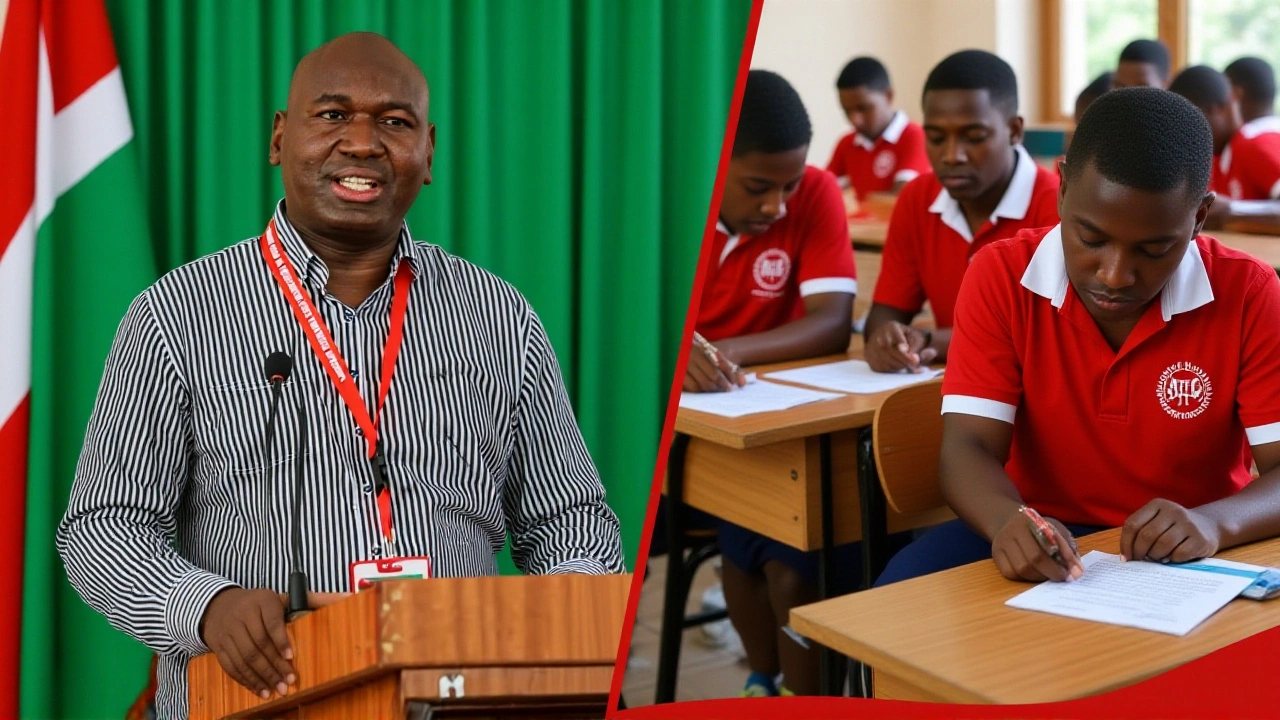KCSE Exams: Overview, Prep Tips & Result Insights
When you start planning for KCSE exams, the Kenya Certificate of Secondary Education that caps four years of secondary schooling. Also known as Kenya secondary school exams, they decide university admission, scholarship chances and many job opportunities.
The KCSE exams are more than a single test; they encompass multiple subjects, from Mathematics and English to Biology and History. Each subject is scored separately, and the aggregate determines the overall grade. This structure means students need a balanced study plan that covers both core and elective papers.
Key Topics Covered
The Kenyan education system, a framework of eight years primary, four years secondary, and various tertiary pathways
shapes how the KCSE is designed. The Ministry of Education sets the syllabus, decides the exam dates, and releases the results. Because the system influences the exam content, any changes in curriculum directly affect what students must learn.Understanding the KCSE results, the official score release that shows students' performance across all subjects
is crucial for planning further studies. Results are published online and in newspapers, and they trigger university placement processes. A strong result can open doors to top universities, while a lower score may require bridging courses.Effective exam preparation, the set of study techniques, resources and schedules used to get ready for the KCSE
involves three main steps: reviewing the syllabus, practicing past papers, and timing mock exams. Students who follow a structured plan often score higher because they avoid last‑minute cramming and identify weak spots early.Let’s break down how these entities interact. The Kenyan education system requires that schools follow a national syllabus, which in turn defines the topics covered in the KCSE exams. The exam preparation process relies on that syllabus, using past papers and study guides that mirror the official format. When the KCSE results are released, they feed back into the education system, informing policymakers about curriculum strengths and gaps.
One common misconception is that mastering a single subject guarantees a good overall grade. In reality, the KCSE aggregates scores from at least eight subjects, so success depends on consistent performance. That’s why many teachers recommend a balanced timetable: two hours for strong subjects, three for weaker ones, plus weekly full‑paper practice.
Technology has also entered the preparation scene. Online platforms now host video lessons, interactive quizzes, and digital mock exams. These tools enhance traditional study methods by offering instant feedback and personalized study paths. If you’re comfortable with a screen, a blended approach can save time and boost confidence.
Another factor to watch is the exam schedule. The KCSE usually runs over a two‑week window in November, with each subject assigned a specific day. Knowing the exact dates helps you allocate revision time effectively. For example, if Mathematics is on the first day, focus heavy practice on it the week before, then shift to English for the following week.
Parents and guardians play a supportive role too. Providing a quiet study space, monitoring sleep patterns, and encouraging regular breaks can improve concentration. Stress management techniques—like short walks, breathing exercises, or listening to calm music—are simple ways to keep anxiety low during the intense revision period.
Financial considerations matter as well. Official study guides, past papers, and registration fees can add up. Some NGOs and government programs offer free resources or scholarships for students from low‑income families. Checking with local education offices can uncover hidden support.
Finally, after the results are out, it’s time to make decisions. If you’ve hit your target grade, start researching university admission requirements, application deadlines, and course prerequisites. If the results fell short, look into bridging courses, vocational training, or alternative career paths that still align with your interests.
In short, the KCSE exams sit at the intersection of curriculum, preparation, and outcomes. By understanding how the Kenyan education system shapes the test, mastering effective exam preparation, and interpreting results wisely, you set yourself up for the next academic step.
Below you’ll find a curated list of articles that dive deeper into each of these areas—study guides, result analysis, policy updates, and more—so you can keep learning and stay ahead of the curve.
Kenya Education Ministry Releases 2026 Academic Calendar – Dates, Exams, Breaks
Kenya's Ministry of Education, led by Julius Bitok, releases the 2026 academic calendar, detailing term dates, exam windows and holiday breaks for schools nationwide.
